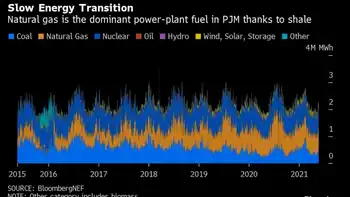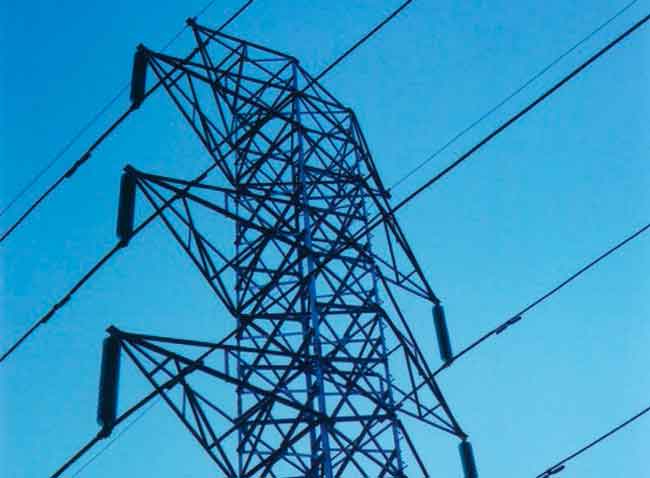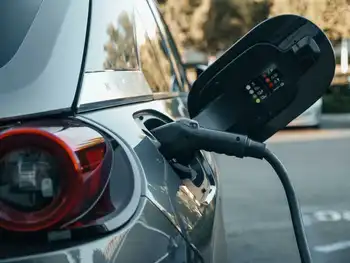Canada may already be ready for plug-in vehicles
By Vancouver Sun
Arc Flash Training CSA Z462 - Electrical Safety Essentials
Our customized live online or in‑person group training can be delivered to your staff at your location.

- Live Online
- 6 hours Instructor-led
- Group Training Available
The same 120-volt electrical outlets used to keep Canadian cars' engine blocks warm in the winter can be used to power plug-in hybrid electric vehicles — PHEVs — year-round, avoiding the need for extensive infrastructure in which more temperate cities would have to invest, says a leading transportation think-tank.
Arne Elias, executive director of the Centre for Sustainable Transportation at the University of Winnipeg, said next year, when PHEVs are to be for the first time widely available, the unassuming outlets will enable most Canadian cities to forgo the need to install recharging stations.
Hybrids available for sale today use the electric motor only for slow speeds, idling and maintaining velocity — acceleration is achieved through the use of a parallel gasoline motor.
PHEVs, such as Chevrolet's forthcoming Volt and plug-in variants of the Volkswagen Golf, Toyota Prius and Ford Escape, run exclusively on their electric battery until it is drained, when it switches over to gasoline.
Tests with PHEVs have shown when driven in optimal conditions, they consume fuel at a rate of approximately 2.5 litres per 100 kilometres. This compares to an average of between eight and 12 litres/100km for most gasoline-powered vehicles, according to Natural Resources Canada.
The Volt was designed for daily commutes of less than 60 kilometres, about what the average Canadian drives each day. If used solely for city driving, PHEVs can theoretically go weeks without using gasoline or releasing carbon dioxide.
The knock against PHEVs is that to realize their full potential, a network of recharging stations connected to the power grid would have to be installed wherever the cars are driven.
That issue came up during a recent conference Elias attended in California, where much of the research and development of electric cars has taken place.
"There were interminable discussions about putting in infrastructure, and I said, 'Listen, in Winnipeg, it's already there... there's a plug in every lot. They're everywhere.' "
The 120-volt outlets achieve so-called Level 1 charging, which takes between 8-14 hours to fully recharge a car battery, while specialized 240-volt outlets charge in about half that time.
Vancouver's city council passed legislation requiring all new condominiums built in the city to install the 240-volt outlets in 20 per cent of all parking spots — the first city in North America to do so.
Each station would cost between $1,000 and $1,500 to install. The residents who own each spot will likely have to pay the monthly bill for electricity used in recharging, a city official said.
This, however, seems to be of little comfort to developers, who would have liked to have seen the ratio for charging stations reduced to five per cent of parking stalls.
Jeff Fisher, deputy executive director of Urban Development Institute, which represents developers, said the organization is working with the City of Vancouver, but has some specific concerns.
"We are always supportive of going green and efforts to reduce greenhouse gas emissions, but we want to make sure that this is the right green-car technology. There are a number out there. We have had hydrogen fuel cell vehicles and concepts like the 'hydrogen highway' for some time. We feel it might be premature to mandate this."
He added that while 0.5 cent of the cost of the building is small, "when you look at the cost of other fees that the industry is facing, in aggregate, it is more significant."
Ben Marans, the program manager for the Toronto Atmospheric Fund, an environmental task force run by the city, said governments need to work together to promote the use of PHEVs — and that they should take a cue from the U.S.
"There's a lot of incentives south of the border. There's $7,500 right off the bat from the federal government for plug-ins, and every state has its own incentives," he said.
"Canada is one of the only countries in the OECD that does not have any incentives for plug-ins and hybrid vehicles, barring the PST rebate for fuel-efficient vehicles in Ontario."
Marans said Toronto has partnered with Project Get Ready, a Colorado-based initiative that works with cities around North America, including Houston and Indianapolis — cities with significant ties to oil, to prepare for widespread PHEV use.
Among the proposals being considered by Canada's largest city include non-financial incentives for PHEV drivers, such as access to HOV (high-occupancy vehicle) lanes and priority parking.
But Marans said there are technical details that need finalizing before Toronto can become fully PHEV-friendly, such as figuring out building permits and safety provisions needed for home-based recharging stations, and deciding where the plug-ins would be best situated for drivers around the city.
Ontario Premier Dalton McGuinty announced in January plans to introduce a payment program for PHEV drivers, in which they would lease a battery and pay for all recharging fees on a monthly bill from a utility company, similar to a cellphone contract.
Most other Canadian municipalities are taking a wait-and-see approach with legislating plug-ins.
A Montreal transport plan adopted last year calls for gradual installation of recharge stations for electric cars only in the long term, once certain that they have been embraced by the public. An official with the City of Ottawa said it too, was waiting to see what public response would be to the cars before acting.
The City of Calgary has plans to study the plug-in stations at businesses, but an official said nothing binding has yet been passed.
Elias, who advises Winnipeg's environmental committee, said that while Winnipeg had yet to officially endorse any plug-in laws, he suspected it would be "amenable" to the idea.
But he cautioned the quicker cities prepare themselves for PHEVs, the more they stand to gain from them.
"Are we jumping the gun? I don't think so, I think this is good timing.
"Electrification is going to be the answer, we're pretty convinced of that."











